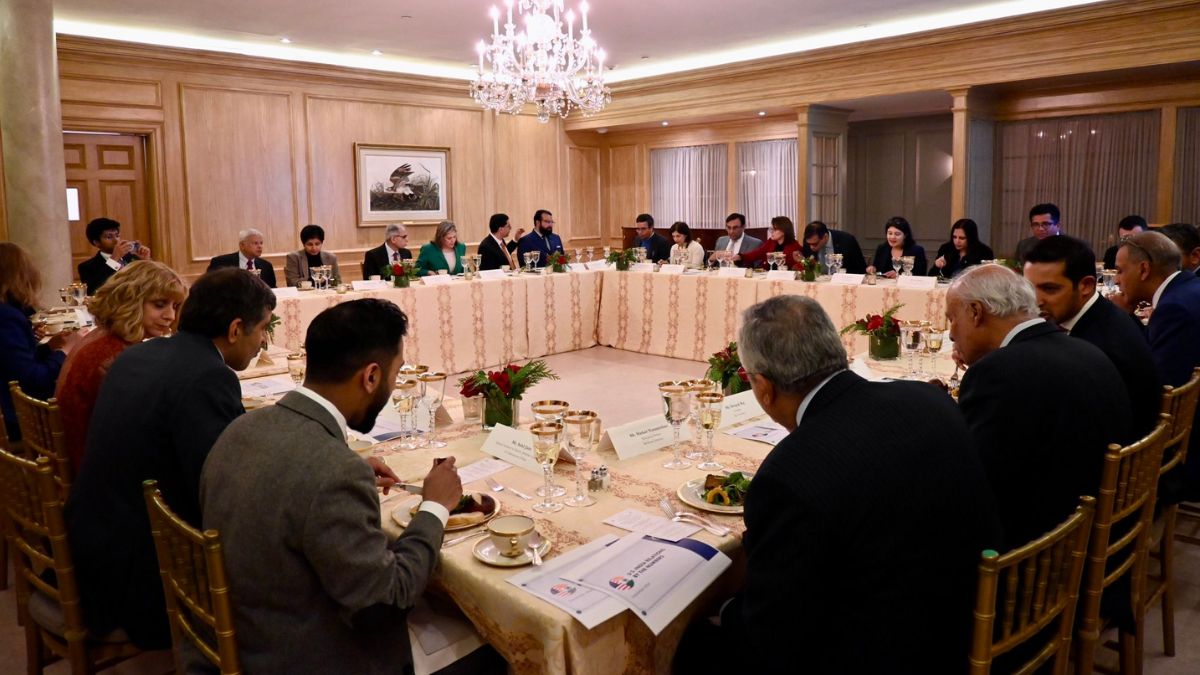
U.S. president-elect Donald Trump named Sen. Marco Rubio of Florida as his nominee for secretary of state on Wednesday, setting up a onetime critic who evolved into one of Trump’s fiercest defenders to become the nation’s top diplomat.
The 53-year-old conservative lawmaker is a noted hawk on China, Cuba and Iran, and was a finalist to be Trump’s running mate this summer. On Capitol Hill, Rubio is the vice-chair of the Senate intelligence committee and a member of the Senate foreign relations committee.
He has pushed for taking a harder line against China and has targeted social media app TikTok because its parent company is Chinese. He and other lawmakers contend that Beijing could demand access to the data of users whenever it wants.
“He will be a strong Advocate for our Nation, a true friend to our Allies, and a fearless Warrior who will never back down to our adversaries,” Trump said of Rubio in a statement.
Trump made the announcement while flying back back to Florida from Washington after meeting with U.S. President Joe Biden.
History between Rubio, Trump
The selection is the culmination of a long, complicated history between the two men. During their tense competition for the Republican presidential nomination in 2016, Rubio was especially blunt in his criticism of Trump, calling him a “con artist” and “the most vulgar person to ever aspire to the presidency.”
He tried to match Trump’s often-crude attacks by joking about the size of Trump’s hands in a reference to his manhood. Trump responded by branding Rubio as “little Marco,” a nickname that stuck with the senator for years.
But like many Republicans who sought to maintain their relevance in the Trump era, Rubio shifted his rhetoric. As speculation intensified that Trump might pick him as his running mate, Rubio sought to play down the tension from 2016, suggesting the heated tone simply reflected the intensity of a campaign.
“That is like asking a boxer why they punched somebody in the face in the third round,” Rubio told CNN when asked about his previous comments. “It’s because they were boxing.”
Rubio was first elected to the Senate in 2010 as part of the Tea Party wave of Republicans who swept into Washington. He quickly gained a reputation as someone who could embody a more diverse, welcoming Republican Party. He was a key member of a group that worked on a 2013 immigration bill that included a path to citizenship for millions of people in the country illegally.
But that legislation stalled in the House, where more conservative Republicans were in control, signalling the sharp turn to the right that the party — and Rubio — would soon embrace. Now, Rubio says he supports Trump’s plan to deploy the U.S. military to deport those in the country illegally.
“We are going to have to do something, unfortunately, we’re going to have to do something dramatic,” Rubio said in a May interview with NBC.
Some analysts questioned whether he would stand up to Trump, noting the president-elect’s inclination to make personal loyalty a central requirement for administration posts.
Aaron David Miller, a senior fellow at the Carnegie Endowment for International Peace, who served in both Democratic and Republican administrations, said it is essential for any president’s advisers to stand up to him when necessary, given the array of foreign policy challenges Trump will face.
“I’m trying to keep an open mind here,” Miller said, noting that Rubio, because of his experience in Congress, has a better grasp of foreign policy than any of Trump’s other appointees.
Democratic Senator Mark Warner, chair of the intelligence committee, quickly issued a statement praising the choice of the panel’s vice-chair.
“I have worked with Marco Rubio for more than a decade on the intelligence committee, particularly closely in the last couple of years in his role as vice-chairman, and while we don’t always agree, he is smart, talented, and will be a strong voice for American interests around the globe,” Warner said in a statement.
The president-elect has named multiple people that he wants to see serving in his cabinet in the next four years, when the Biden presidency comes to an end in January.
The 78-year-old Trump will return to power after spending four years away from the Oval Office. It’s only the second time that someone has won non-consecutive terms in the White House — the other being Grover Cleveland, more than a century ago.






